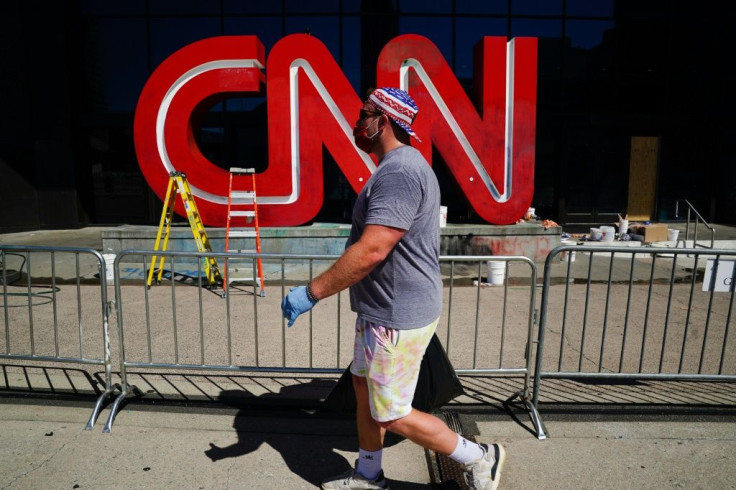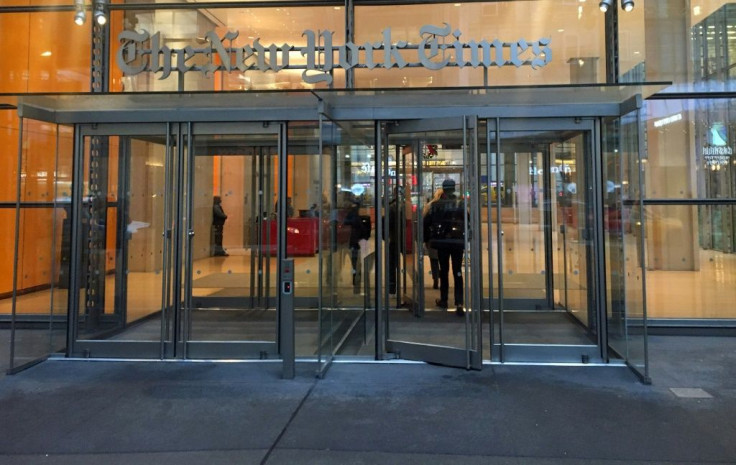News Media Seeing 'Post-Trump Slump' As Passions Cool
Tensions have cooled between the news media and the White House after four tumultuous years -- potentially bad news for outlets struggling with a long downtrend in the industry.
The so-called "Trump bump" which boosted viewers and subscriptions at outlets such as CNN and the New York Times now appears to have turned into a slump following the departure of Donald Trump from the presidency.
At CNN -- which was at loggerheads with Trump for much of his tenure -- viewership in prime time has slid some 50 percent in March 2021 compared with a year ago, with smaller declines for cable news rivals Fox News Channel and MSNBC, according to Nielsen data.
Online visits to the New York Times fell 30 percent from November to February and 27 percent at the Washington Post, according to the research firm ComScore.
Some of the declines can be attributed to a falloff from the contentious election season, but they also underline the harsh economic realities facing the news media which predate the Trump era.
"This is not a new economic reality, we've seen this downtrend for years," said Adam Chiara, a communications professor at the University of Hartford.

Chiara said the Trump years gave a "temporary bump" to news organizations like the New York Times, which has seen sharp gains in digital subscribers, and CNN, which had a strong following.
But the long-term trend, Chiara said, is people moving away from traditional cable bundles and newspaper subscriptions, relying instead on online platforms.
"Almost all my students are getting their news from social media," he said.
The Trump era was one of solid growth for key news outlets, especially those that served as a watchdog on the US leader. The number of CNN viewers doubled since 2014, while MSNBC's tripled.
The New York Times has boosted the number of subscribers to more than seven million, but analysts warn that future growth may be limited.

Boston University political communications professor Tobe Berkovitz said many legacy outlets are facing a reckoning now in the on-demand digital economy after the intensity of the Trump era.
"Trump was the goose that laid the golden egg and that was especially true for the cable networks and dominant newspapers," Berkovitz said.
The lack of drama in Washington, Berkovitz said, means "fewer eyeballs" for media outlets, which translates into declining ad revenues and subscriptions, deepening their economic woes.
Mark Lukasiewicz, dean of the Hofstra University school of communications, said Americans may be ready for a break from the intense period of news over the past few years during which Trump attacked the media as scandals were unearthed about his administration.
"I think people were exhausted by the drama and the tension, and probably quite understandably, are turning back to some other interests in their lives, to their families, to their kids, to their work, to their lives and away from the news," Lukasiewicz said.
"I don't think it's simply the departure of Donald Trump. I'm sure Donald Trump would like to think that his presence alone controls the success of news media. In the United States, I just don't think that's true."
Berkovitz maintained however that President Joe Biden is "a boring guy" who doesn't generate much drama, making it more difficult to attract readers and viewers.
After a period in which the news was equated to drama, "viewers are saying they need a time out," Berkovitz said. "They will watch Netflix, Amazon or Apple (shows) as a break from the hysteria."
New York Times chief executive Meredith Kopit Levien said in February the media group has proven its value through a variety of major news events.
"The news cycle will change and audience will fluctuate," she said but added that "we are well positioned to deliver continuous growth" in 2021 and beyond.
Analysts said the Trump years demonstrated to many Americans the value of an independent media serving as a watchdog on political leaders, but that it is unclear if the impact will last.
"Their challenge is to show they have premium content whether it is analysis, reporting or investigative reporting that is worth paying the price," Berkovitz said.
Chiara said more people are seeing the value of news, "but the question will be whether it translates into more subscriptions. So far there's no evidence to show that's the case."
© Copyright AFP 2024. All rights reserved.





















